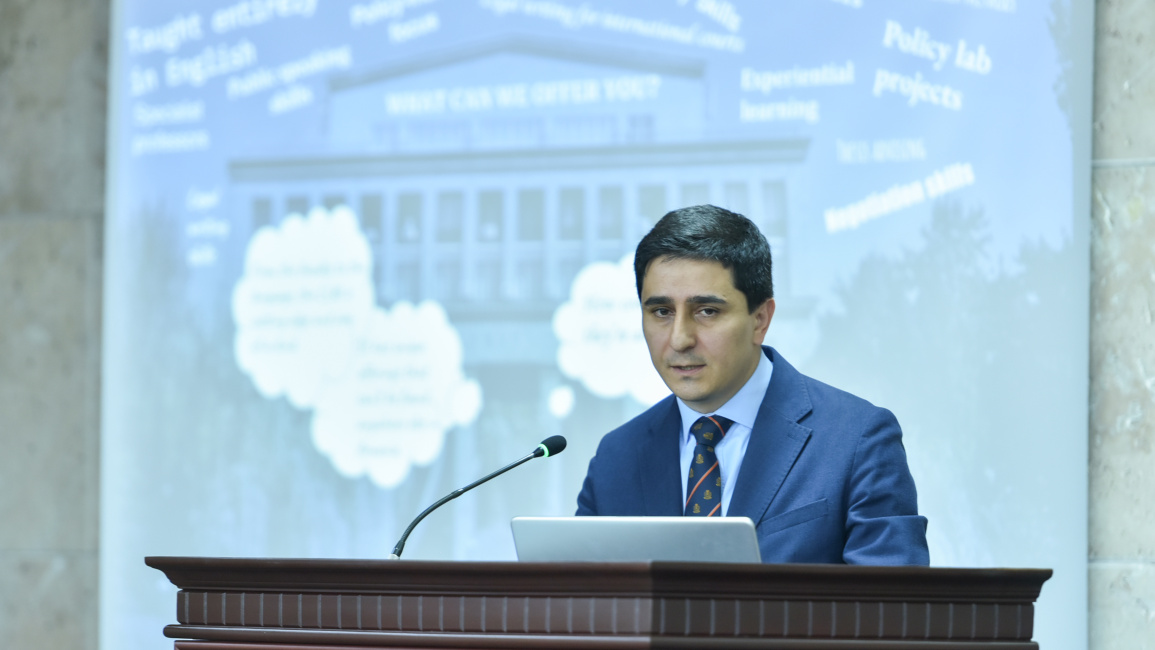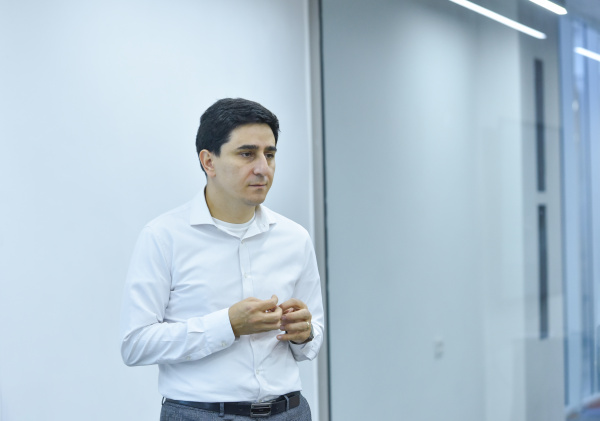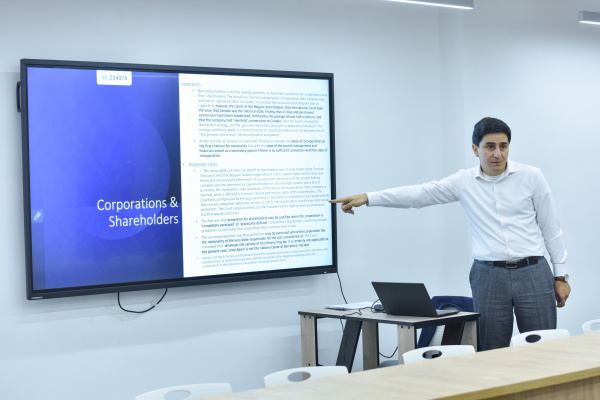July 15, 2025 | 15:15
Science
Education
Graduates
Small states and international law
When it comes to international law—particularly in the context of small states like Armenia—there is no lack of questions. Can small countries truly benefit from this system, or is it designed exclusively for the major players? And if the system is repeatedly violated, does it still retain its value? Yeghishe Kirakosyan, an alumnus of YSU Faculty of Law and currently the Director of YSU "International Courts and Arbitration" master's program, began his professional journey by contemplating these very questions.

During the "Economy and Society" section of YSU Alumni Forum-2025, Yeghishe Kirakosyan delivered a talk on the topic "Small States and International Law".

He stated that his connection with YSU has never been severed. He began as a student, later became a lecturer, and now leads a master’s program aimed at educating future generations and revealing to them the complex framework of international law.
Revise this paragraph to be natural in reading, not exaggerated in wording
Yeghishe Kirakosyan recalls that his initial understanding of international law began during his student years. However, the deeper understanding of the field developed later—by attending international moot court competitions and exploring various legal systems and cultures around the world. These experiences revealed to him the multilayered nature of international law—not merely as a system of rules, but also as a reflection of geopolitical thinking and the balance of power.

"Many people question the rationale for maintaining a system that is so frequently violated. But the existence of violations does not mean that the system is invalid or should be disregarded. There are simply no alternative mechanisms that are more predictable," he notes.
A major turning point in the history of international law came with the 1648 Westphalian system, which, by ending prolonged conflicts, laid down the principles of state sovereignty and equality. From the 19th century onward, a more normative and organized approach began to emerge—numerous conventions were adopted, international arbitration took shape, and after the two World Wars, the institutional framework of international law developed further, from the United Nations to international criminal courts.
However, the collapse of the Soviet Union marked a significant shift. The reconfiguration of the global order, the clash of interests, and the emergence of new centers of power gradually began to erode the legal framework established after World War II. According to Yeghishe Kirakosyan, during this period, international law began to undergo fragmentation—different regions started forming their own interpretations, even as the underlying principles remained the same.

It is precisely at this juncture that small states face a dilemma: is it worth continuing to operate within a system that appears unstable and, at times, unjust? The expert’s answer is unequivocal—yes. Despite all its shortcomings, this is the minimal framework within which it is possible to defend national interests through legal tools and dialogue with global actors.
It is this understanding that gave rise to the "International Courts and Arbitration" master’s program at YSU. The program is taught in English and is designed to present international law through a logical, principled, and practical lens. Yeghishe Kirakosyan firmly believes that Armenia needs professionals who view international law not merely as a set of externally imposed Western ideas, but as a functioning system—one that demands not only navigation skills but, where possible, the ability to shape it as well.
Video

